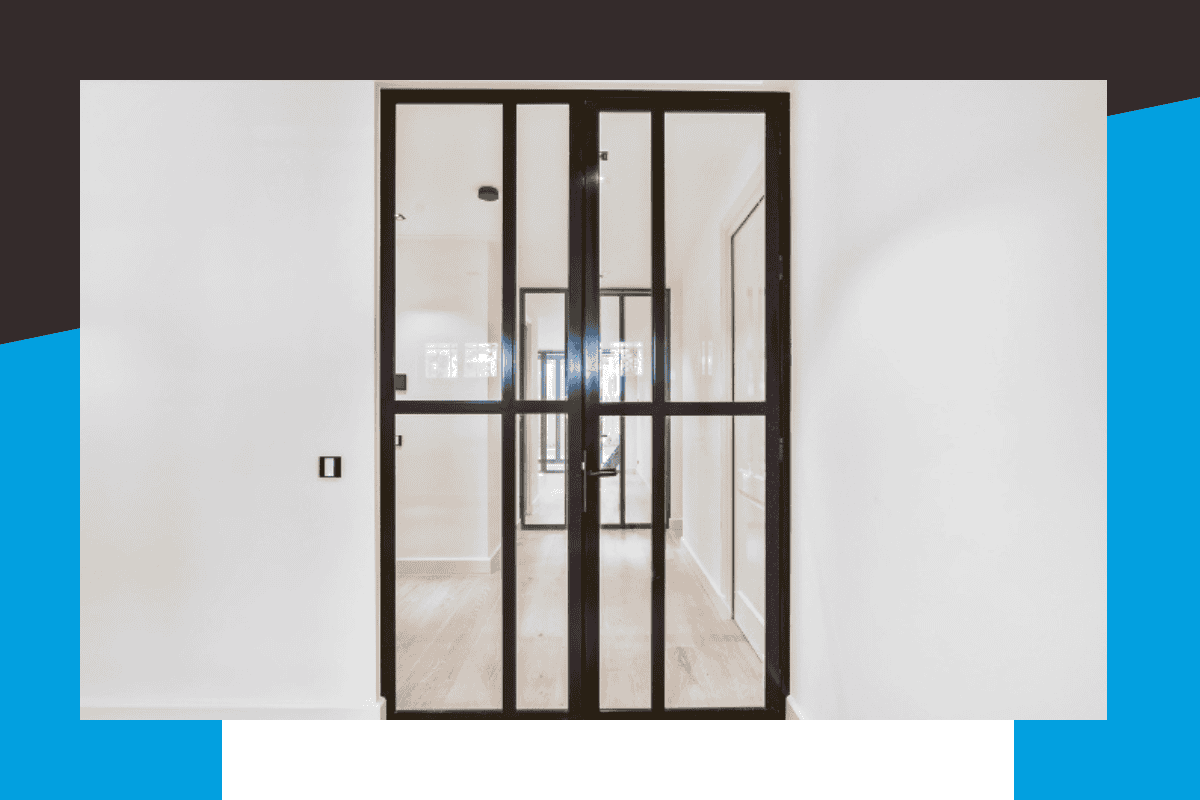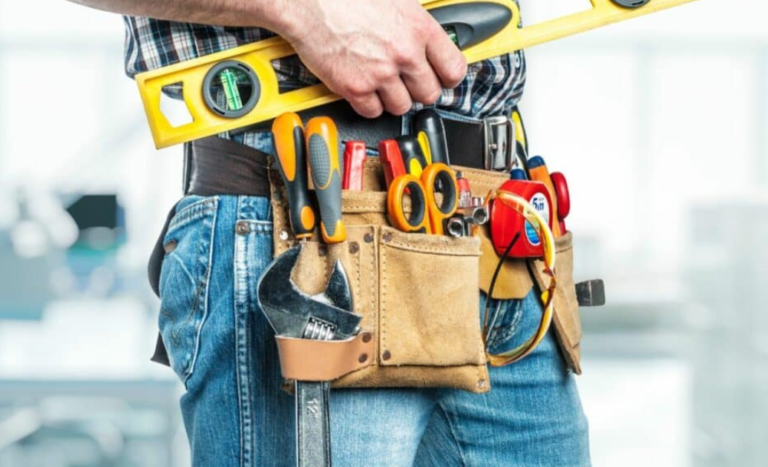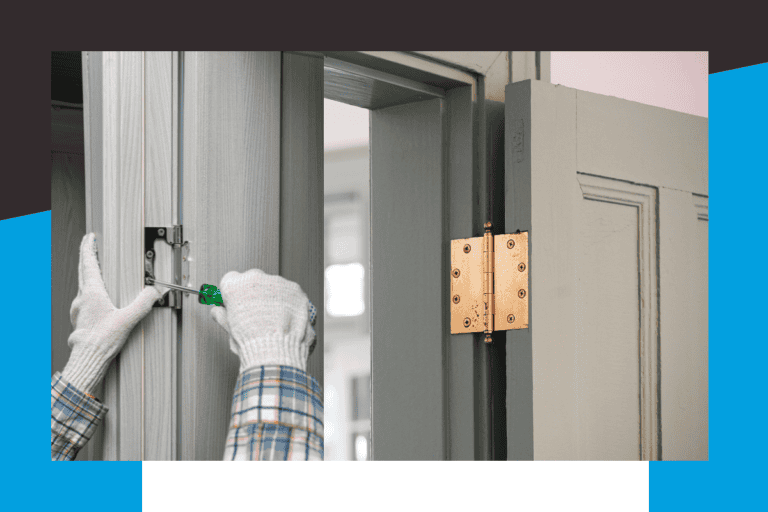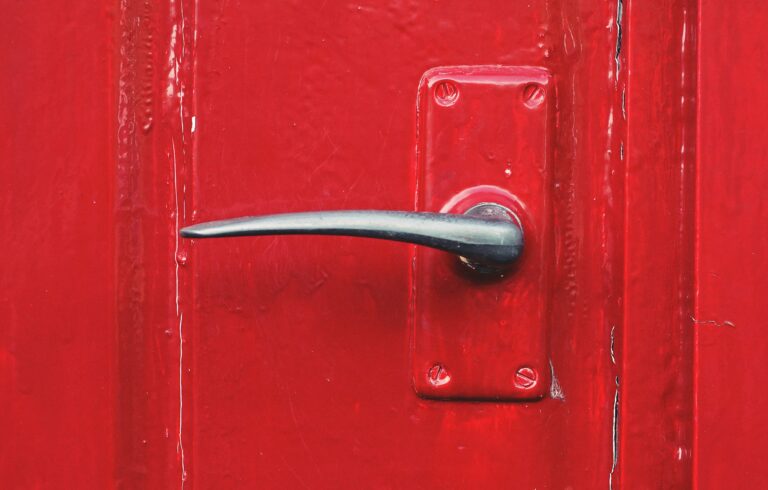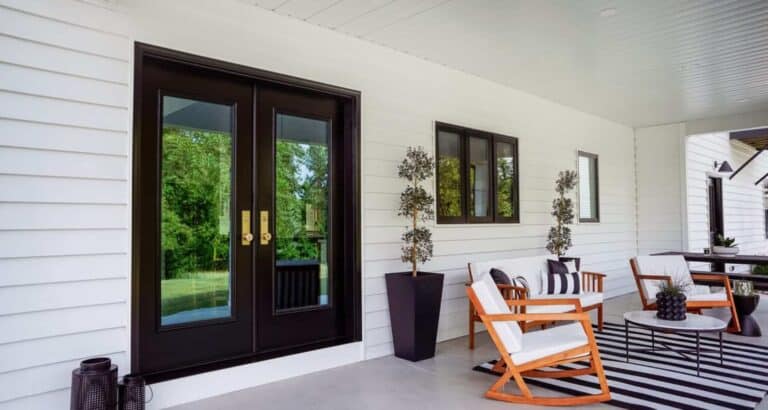Choosing commercial doors for your business is more than just a functional choice—it’s about ensuring safety, enhancing aesthetics, and supporting daily operations. Whether you’re considering fire rated doors for added safety, sleek glass doors for a modern touch, or durable metal doors for high-traffic areas, the decision you make will have a long-term impact on your business’s success.
Each business has unique requirements. From the size and style of your commercial space to your specific needs for security, energy efficiency, and sound insulation, there’s no one-size-fits-all solution. Choosing the best commercial door requires balancing aesthetics with functionality while factoring in your budget and local building codes.
This guide simplifies the decision-making process, breaking down everything from door materials to durability, so you can make an informed choice. Whether you’re outfitting an office building, renovating a storefront, or upgrading an industrial setting, we’ve got you covered.
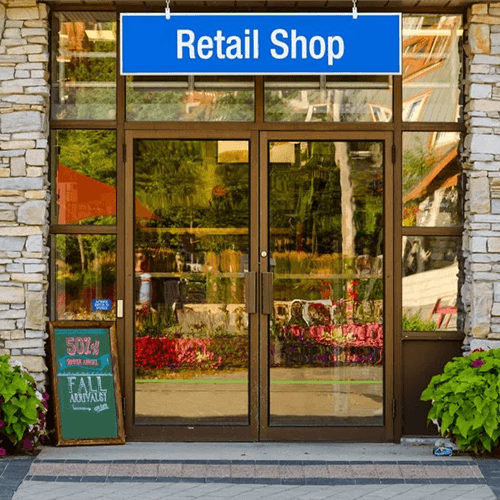
Sound good? Keep reading to discover how the perfect commercial door can enhance your business, improve operations, and create a lasting impression.
Why Choosing the Right Commercial Door Matters
Your commercial door isn’t just a way to enter or exit—it plays a pivotal role in your business. It’s the first impression for customers, a key element of security, and often a crucial factor in energy efficiency. The right door can boost your business’s functionality and even save you money in the long run.
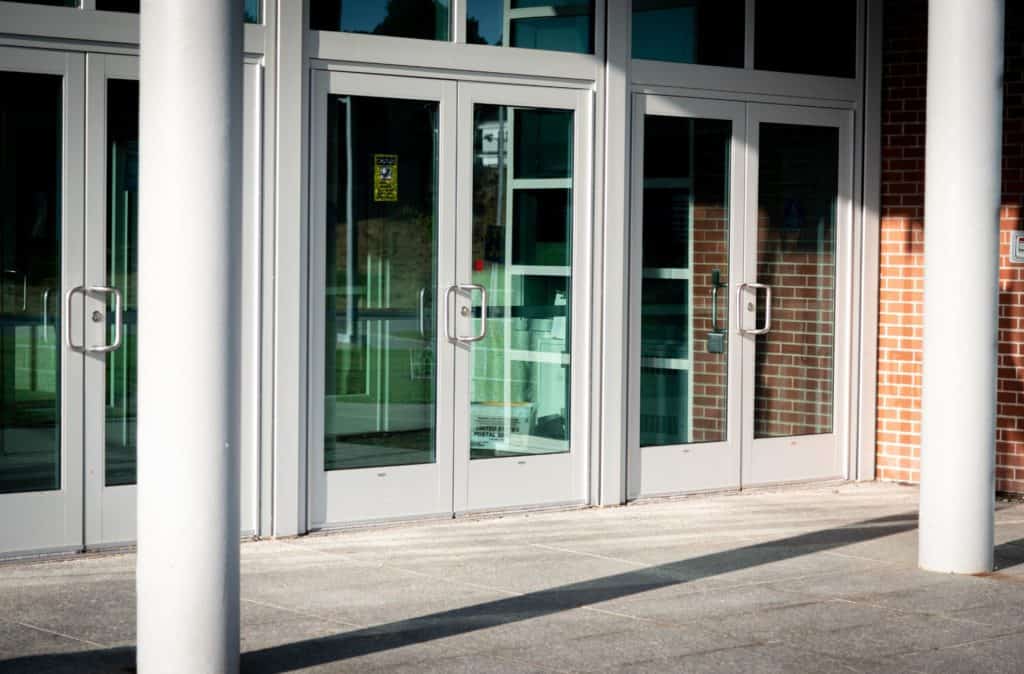
Action Lock Doc
Think about this: a well-designed door for high-traffic areas, like glass doors for a retail shop, can attract customers while providing smooth operation. Meanwhile, fire rated doors ensure safety and compliance with local regulations in spaces where fire hazards are a concern.
Choosing the right commercial door isn’t just about aesthetics or cost. It’s about balancing durability, functionality, and your specific business needs. Whether you’re considering aluminum doors for a modern look or hollow metal doors for added security, the decision impacts more than you might realize.
Assessing Your Business Needs
Every business is different, and your doors should reflect that. A bustling retail store won’t need the same doors as a quiet office building or a high-security warehouse. To choose the right commercial door, you need to start with your specific requirements.

L&P Commercial
How to Identify Your Needs:
- Business Type: Are you running a store, office, industrial facility, or something else? Each has unique needs:
- Retail Stores: Glass doors with sleek designs attract customers while allowing visibility.
- Healthcare Facilities: Automatic doors promote hygiene and accessibility.
- Warehouses: Hollow metal doors or durable steel options ensure safety and security.
- Traffic Levels: High-traffic areas require durable doors that can handle frequent use, like aluminum doors or reinforced fiberglass doors.
- Primary Function: Consider what you need most:
- Enhanced security for sensitive areas.
- Fire safety with fire rated doors.
- Energy efficiency to reduce heating and cooling costs.
Evaluating Door Materials
The material of your commercial door is a game-changer. It impacts durability, energy efficiency, security, and even the overall aesthetics of your space. With so many options available, understanding the strengths and weaknesses of each material is crucial.
Glass Doors:
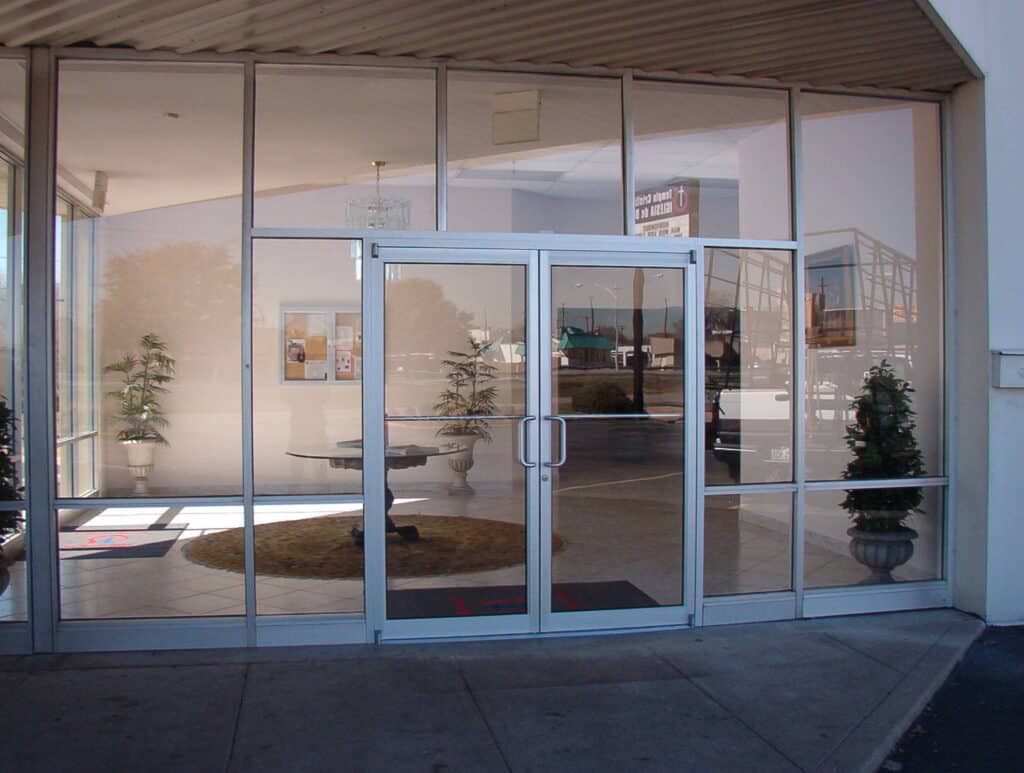
- Best For: Retail storefronts, office buildings, and spaces focused on aesthetic appeal.
- Pros: Modern look, allows natural light, and visually connects interior and exterior spaces.
- Cons: Requires frequent cleaning and reinforced glass for security.
Steel Doors:
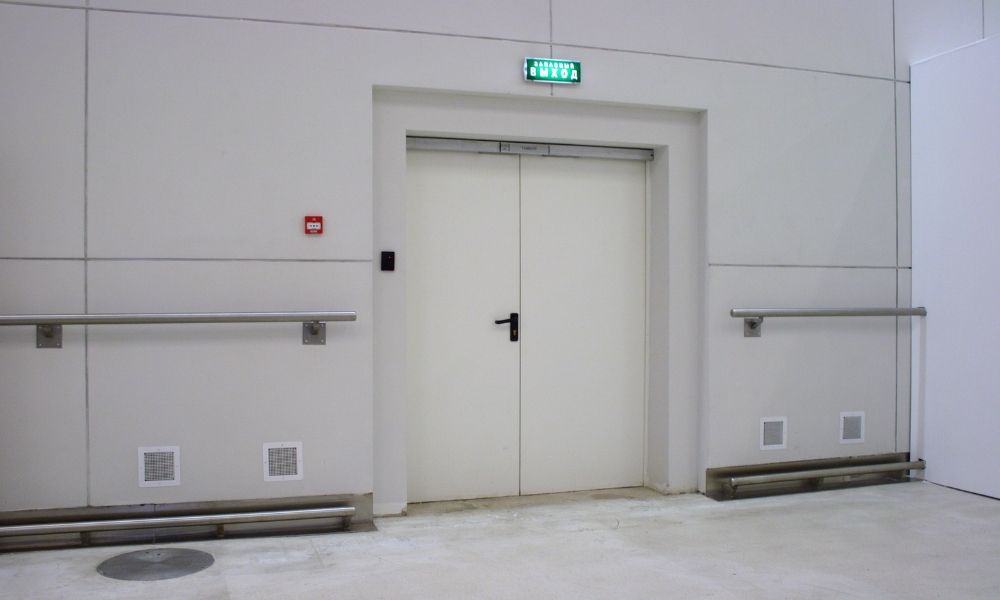
- Best For: Industrial settings, warehouses, and high-security areas.
- Pros: Durable, excellent for enhanced and more advance security, and often fire-rated.
- Cons: Can be heavy and may require regular maintenance to prevent rust.
Aluminum Doors:
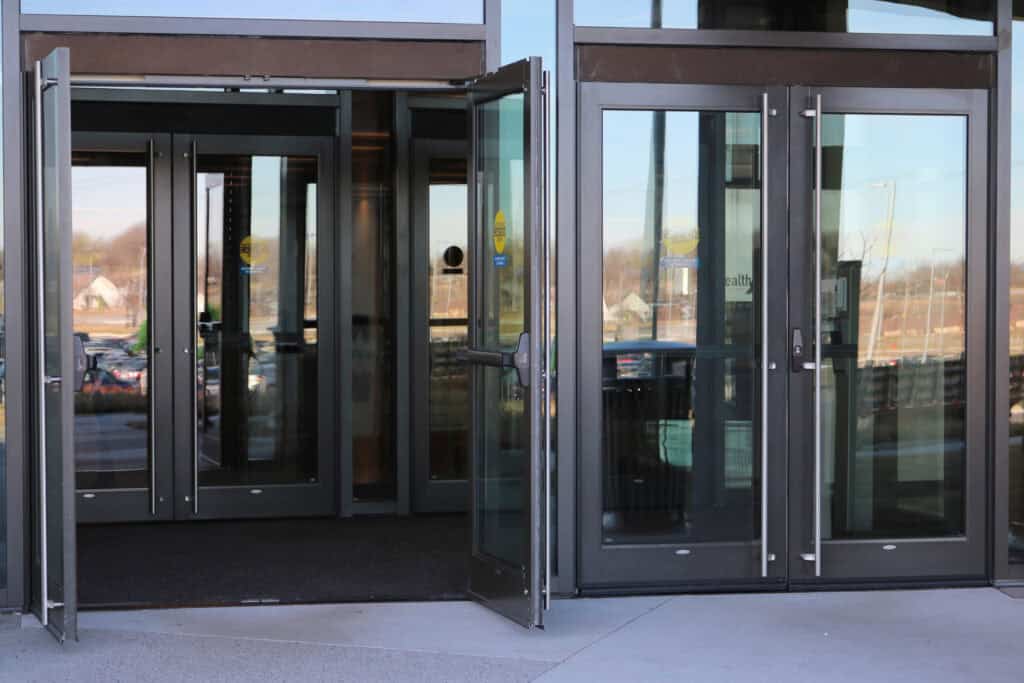
- Best For: Office buildings, storefronts, and spaces needing a lightweight, rust-resistant option.
- Pros: Low maintenance, weather-resistant, and sleek in design.
- Cons: Less sturdy than steel for high-security needs.
Wood Doors:
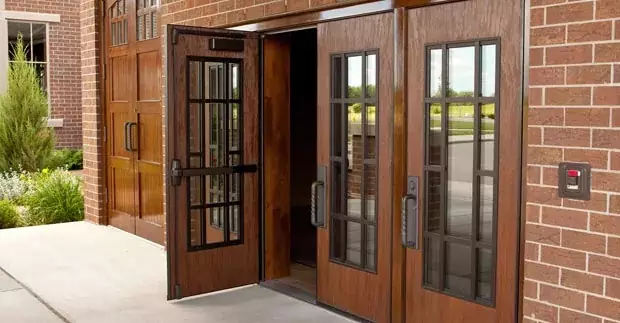
- Best For: Office spaces or businesses wanting a professional, warm aesthetic.
- Pros: Offers a classic look, good sound absorption, and can be customized.
- Cons: Less durable in high-traffic areas or harsh environments.
Hollow Metal Doors:
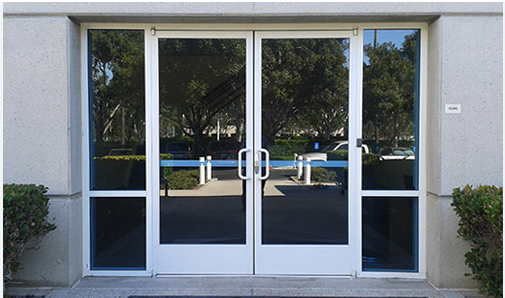
- Best For: High-security buildings and areas requiring fire safety compliance.
- Pros: Strong, fire-rated, and cost-effective for industrial uses.
- Cons: May lack the aesthetic appeal of other materials.
Fiberglass Doors:
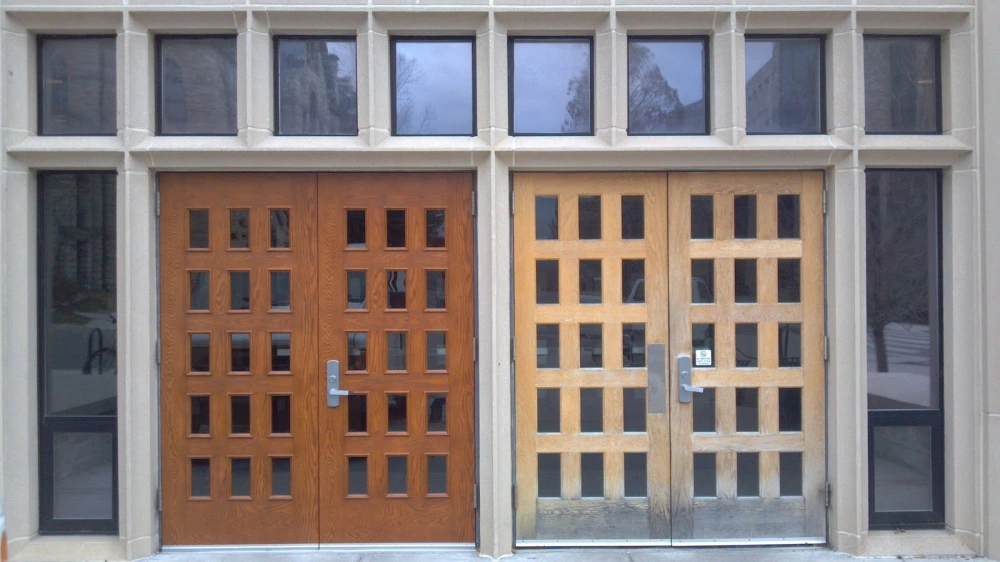
- Best For: Areas exposed to moisture or harsh weather.
- Pros: Resistant to corrosion, lightweight, and durable.
- Cons: Can be pricier upfront than steel or wood.
How to Choose the Right Material:
- Consider Your Environment: For high-moisture or coastal areas, fiberglass or aluminum doors are ideal. For interior spaces, wood doors may suffice.
- Think About Durability: High-traffic businesses should prioritize steel or hollow metal doors.
- Match Aesthetic with Function: Glass doors can add elegance, while steel doors enhance security.
With the right materials, you’re already halfway to selecting the perfect door. Up next, we’ll explore how to prioritize safety and security features.
Prioritizing Safety and Security
When it comes to commercial doors, safety and security are non-negotiable. Whether you’re running a retail store, managing a warehouse, or operating an office building, the right door must protect your business while complying with local building codes.
Key Security Features to Look For:
- Fire Rated Doors:
- Crucial for industrial settings, kitchens, and any areas where fire hazards exist.
- These doors are designed to contain fire, providing valuable evacuation time.
- Ensure they meet local fire safety regulations.
- Locking Mechanisms:
- Advanced locks like keycard systems or biometric readers offer more advance security.
- Traditional locks can be paired with heavy-duty door closers for added safety.
- Reinforced Materials:
- Hollow metal doors or steel doors are excellent choices for high-security areas.
- Fiberglass doors provide a strong, weather-resistant option for exterior entranceway.
- Sound Insulation:
- For offices or private meeting spaces, doors with strong insulation offer both security and privacy.
Compliance with Local Regulations:
- Always check that your doors adhere to local building codes and the Americans with Disabilities Act (ADA). This ensures proper width, handle placement, and accessibility features.
- Install automatic doors in high-traffic or public areas to improve accessibility and meet compliance requirements.
Safety in High-Traffic Areas:
- Durable doors made from steel or fiberglass work well in spaces where frequent use could wear down lesser materials.
- Door hardware, like heavy-duty hinges and closers, ensures smooth operation and reduces wear and tear.
Considering Energy Efficiency
Commercial doors aren’t just about looks and security—they also play a key role in improving energy efficiency. The right door can help regulate temperatures, lower utility costs, and make your space more sustainable.
How Doors Impact Energy Efficiency:
- Insulation Matters:
- Insulated doors reduce heat loss in the winter and block heat in the summer.
- Hollow metal doors and fiberglass doors often come with thermal insulation, making them ideal for temperature-sensitive businesses.
- Weather Stripping and Seals:
- Properly sealed doors prevent drafts and air leaks.
- This is especially important for exterior entrances in industrial settings or office buildings.
- Glass Doors and Efficiency:
- While visually appealing, standard glass doors may let heat escape or enter.
- Look for energy-efficient glass options with low-emissivity (low-E) coatings to balance aesthetics and insulation.
Tips for Choosing Energy-Efficient Doors:
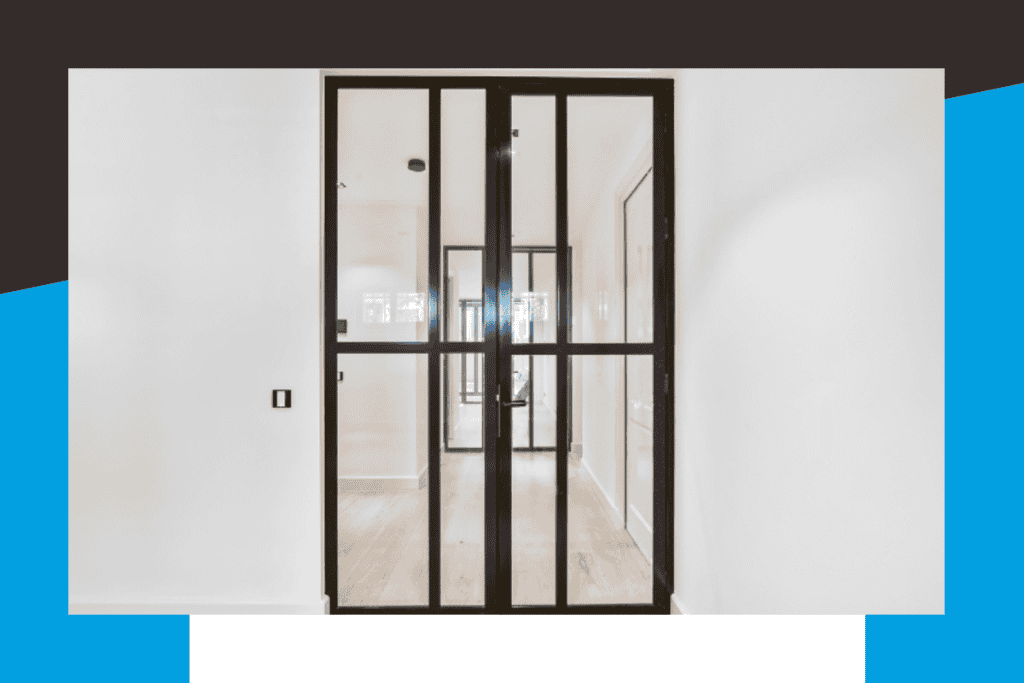
- Match Materials to Climate: In colder climates, insulated steel or fiberglass doors work best. For moderate climates, aluminum doors with weatherproofing may suffice.
- Consider the ROI: While energy-efficient doors might cost more upfront, they often save money on heating and cooling in the long run.
- Ensure Proper Installation: Poor installation can undermine even the best-insulated doors, so work with professionals who follow local building codes.
Bonus Benefit: Improved Comfort Not only does an energy-efficient door save on costs, but it also makes your space more comfortable for employees and customers. No one wants to sit in a drafty office or shop in a space that feels like an oven.
Ensuring Accessibility and Compliance
Accessibility isn’t just about following regulations—it’s about creating an inclusive environment where everyone, from employees to customers, feels welcome. Choosing commercial doors that meet accessibility standards while maintaining functionality and style is a win for your business.
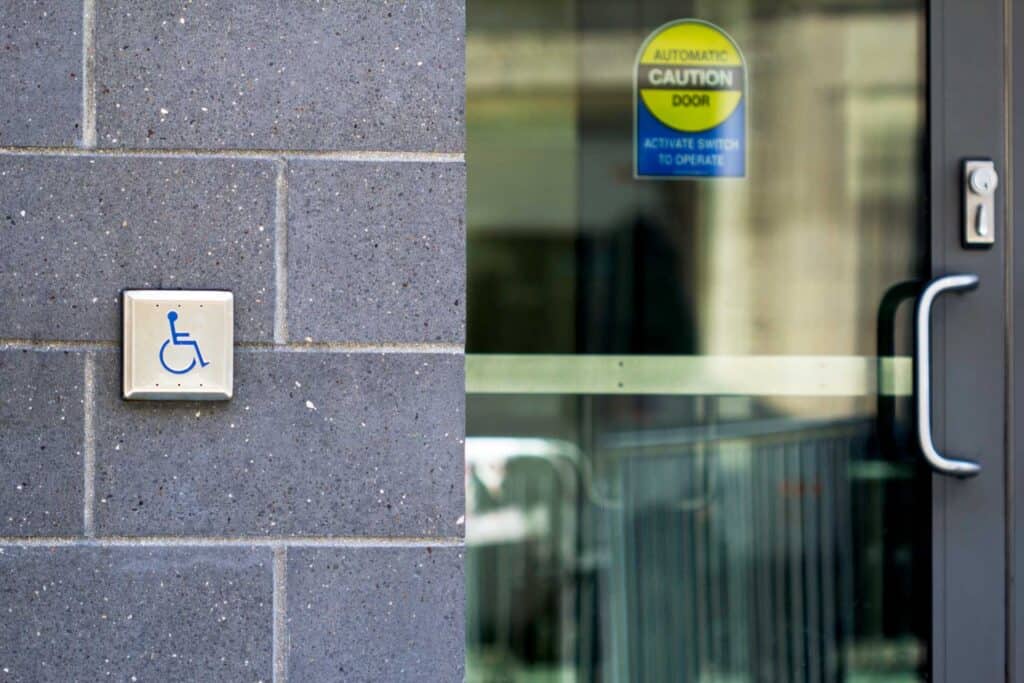
Select Door and Frame
Key Accessibility Features to Consider:
- Automatic Doors:
- Ideal for high-traffic areas like retail stores, healthcare facilities, and office buildings.
- These doors ensure smooth operation and make it easier for people with mobility challenges to enter.
- ADA Compliance:
- Doors should meet the requirements of the Americans with Disabilities Act (ADA), including:
- A minimum width of 32 inches.
- Handles that are easy to grasp and positioned at an accessible height.
- Low opening force for manual doors.
- Doors should meet the requirements of the Americans with Disabilities Act (ADA), including:
- Door Closers and Hinges:
- High-quality door closers ensure controlled, quiet closing, which is especially important in public spaces.
- Hinges should allow for easy and smooth operation to minimize strain.
Compliance with Local Building Codes:
- Ensure your doors adhere to local regulations regarding fire safety, security, and accessibility.
- For example, fire rated doors in specific areas may be mandatory, and exterior entrances might require additional weatherproofing or security features.
The Business Benefits of Accessibility:
- Accessibility-compliant doors not only meet legal requirements but also expand your customer base.
- A well-designed door that caters to all users enhances your reputation and creates a more welcoming atmosphere.
Balancing Budget with Long-Term Value
While it’s tempting to focus on upfront costs when selecting commercial doors, it’s equally important to consider long-term value. A door that’s cheap today might cost you more in maintenance, energy inefficiency, or even replacements later. Balancing your budget with durability and functionality is the key to making a smart investment.
Steps to Balance Cost and Value:
- Set a Realistic Budget:
- Factor in the full cost, including installation, maintenance, and potential repairs.
- Don’t forget additional expenses for door hardware like locks, hinges, and door closers.
- Standard vs. Custom Doors:
- Standard Doors: Cost-effective and available in a variety of styles.
- Custom Doors: Ideal for branding or unique business needs but typically more expensive.
- Match your choice to the requirements of your commercial space.
- Calculate Total Cost of Ownership:
- Consider durability: Steel or hollow metal doors last longer in high-traffic areas.
- Factor in energy efficiency: Insulated or energy-efficient doors might save you money on heating and cooling over time.
- Choose Doors Based on Usage:
- If you’re in a retail space, investing in elegant glass doors can increase foot traffic.
- For warehouses or industrial settings, durable doors like aluminum or fiberglass are worth the upfront cost.
Pro Tips for Maximizing Value:
- Look for warranties or service agreements to protect your investment.
- Work with an expert team to ensure proper installation and reduce the risk of costly errors.
The Importance of Professional Installation and Maintenance
Even the best commercial door can fall short if it’s not installed correctly. Professional installation ensures your door functions smoothly, complies with local building codes, and maintains durability over time. Additionally, routine maintenance can extend the lifespan of your door and prevent unexpected repair costs.
Why Professional Installation Matters:
- Precision and Compliance:
- An professional team ensures your doors meet local regulations and fire safety standards.
- Proper alignment and secure hardware prevent gaps that could compromise energy efficiency or security.
- Smooth Operation:
- Doors that are installed correctly offer smooth operation, especially in high-traffic areas.
- Automatic doors, hollow metal doors, and fire rated doors often require specialized installation techniques.
- Avoiding Costly Errors:
- Incorrect installation can lead to issues like sagging doors, improper seals, or malfunctioning hardware.
- Fixing these errors later is far more expensive than getting it right the first time.
The Role of Regular Maintenance:
- Prevent Wear and Tear:
- High-traffic areas, like storefronts with glass doors, need regular inspections to ensure hinges, locks, and seals are in good shape.
- Maintenance reduces strain on door closers and locking mechanisms, ensuring long-term functionality.
- Improve Safety and Security:
- Fire rated doors should be inspected periodically to ensure compliance with fire safety standards.
- Routine checks on security features, like advanced locks or reinforced frames, protect your business from unauthorized access.
- Boost Energy Efficiency:
- Ensure weather stripping and seals remain intact to prevent drafts.
- Regular adjustments can improve insulation, reducing heating and cooling costs.
Pro Tip: Schedule maintenance annually or bi-annually, depending on door usage. This small investment can save you significant time and money in the long run.
Professional installation and consistent maintenance aren’t just optional—they’re essential for getting the most out of your commercial doors. Now, let’s summarize some recommendations by business type to guide your selection.
Top Door Recommendations by Business Type
Choosing the best commercial door becomes easier when you consider the specific needs of your business type. Each industry has unique requirements for durability, functionality, security, and aesthetics. Here’s a quick guide to help you make the right door option choice.
Retail Stores


- Recommended Door Type: Glass Doors or Aluminum Doors
- Key Features:
- Aesthetic beauty to attract customers.
- Smooth operation for high-traffic areas.
- Enhanced visibility to showcase products.
Restaurants
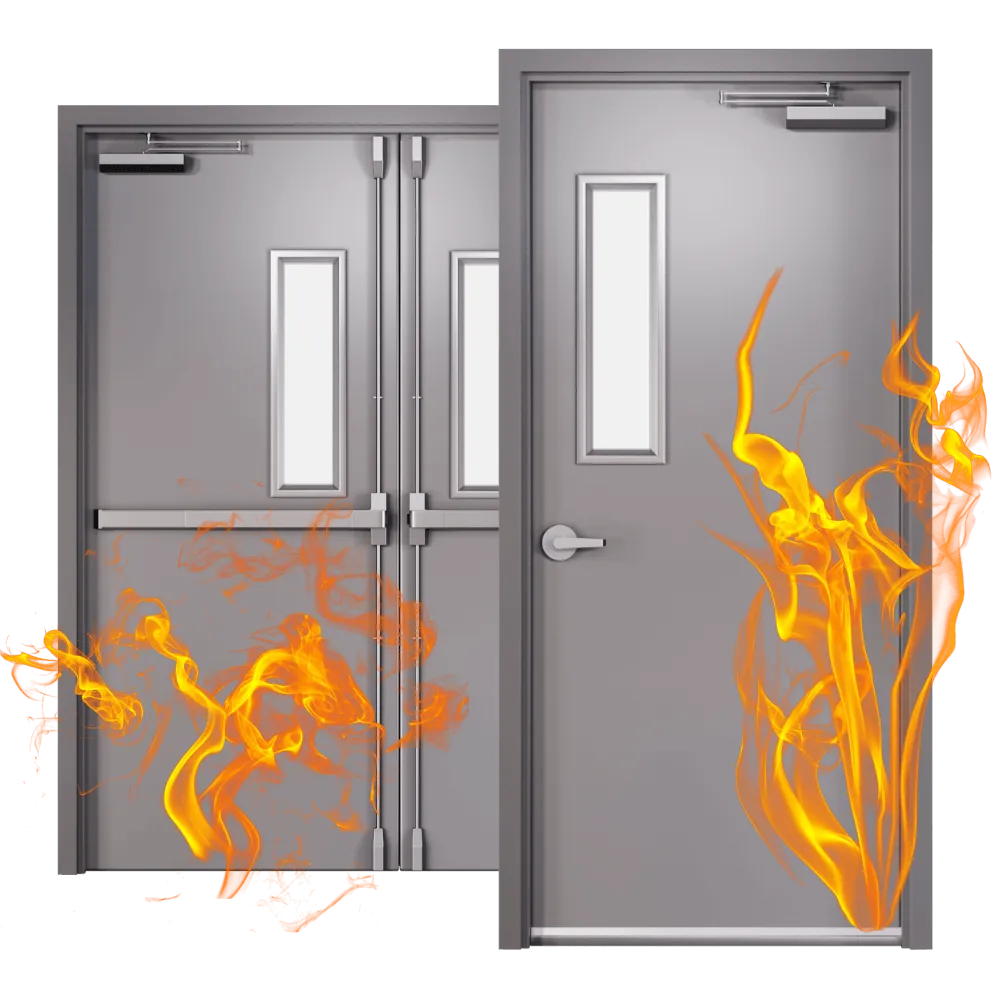
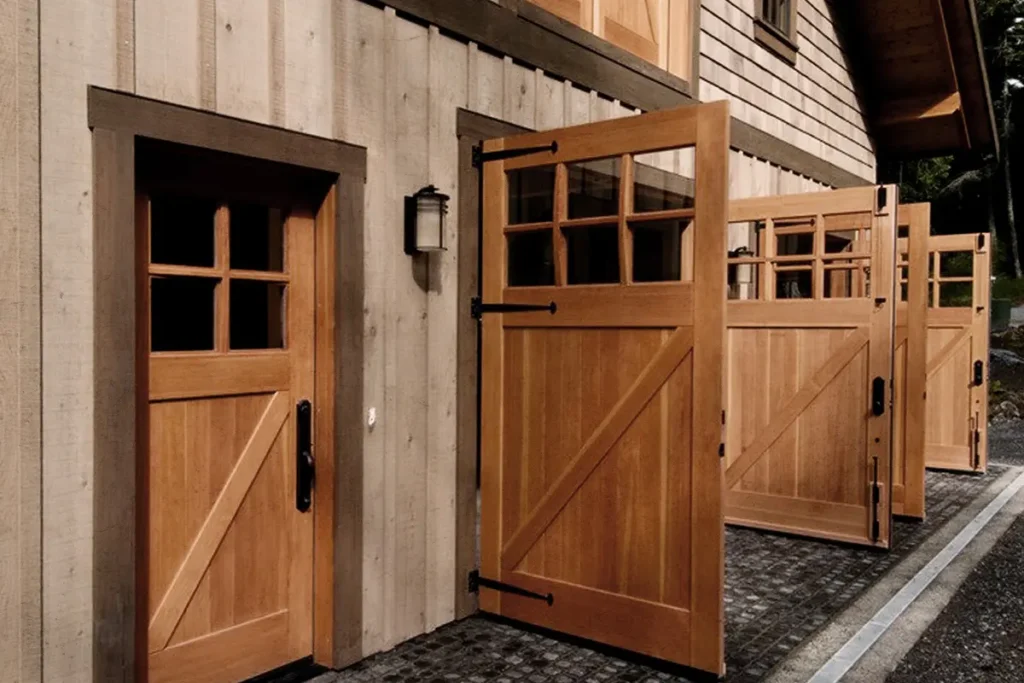
- Recommended Door Type: Fire Rated Doors and Durable Swinging Doors
- Key Features:
- Fire safety compliance for kitchens.
- Easy-to-clean surfaces for hygiene.
- Noise insulation to separate dining areas from the kitchen.
Warehouses and Industrial Settings

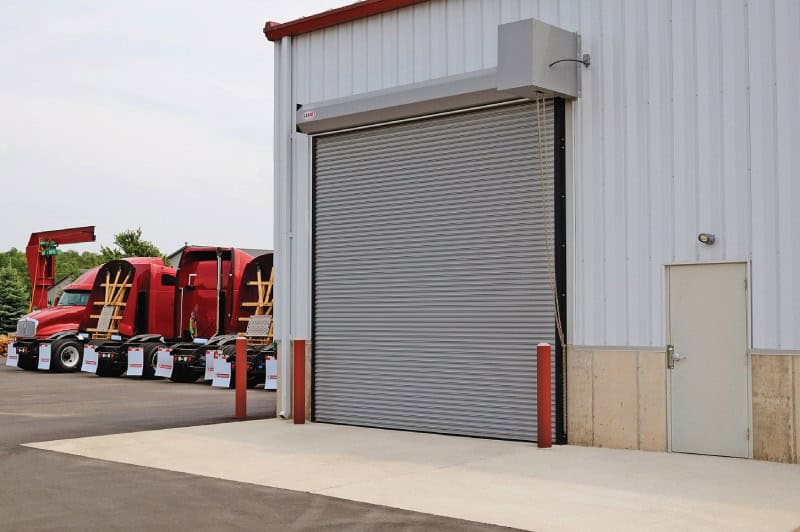
- Recommended Door Type: Hollow Metal Doors or Rolling Steel Doors
- Key Features:
- High durability for heavy use.
- Advanced security features to protect inventory.
- Insulation to improve energy-saving in large spaces.
Office Buildings


- Recommended Door Type: Wood Doors or Glass Doors
- Key Features:
- Professional look that enhances overall aesthetics.
- Sound insulation for private meeting spaces.
- Energy-efficient materials to maintain comfort.
Healthcare Facilities
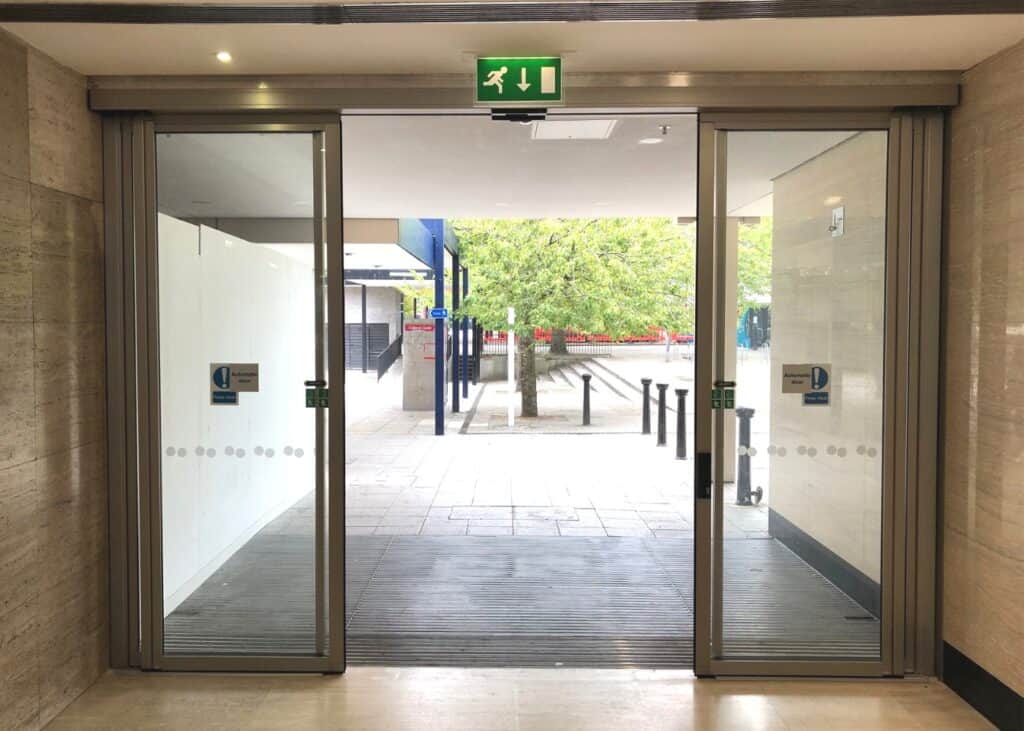

- Recommended Door Type: Automatic Doors or Fire Rated Doors
- Key Features:
- Hands-free operation for hygiene and accessibility.
- Compliance with fire safety and local building codes.
- Smooth operation to accommodate patients and staff.
Customer-Facing Businesses
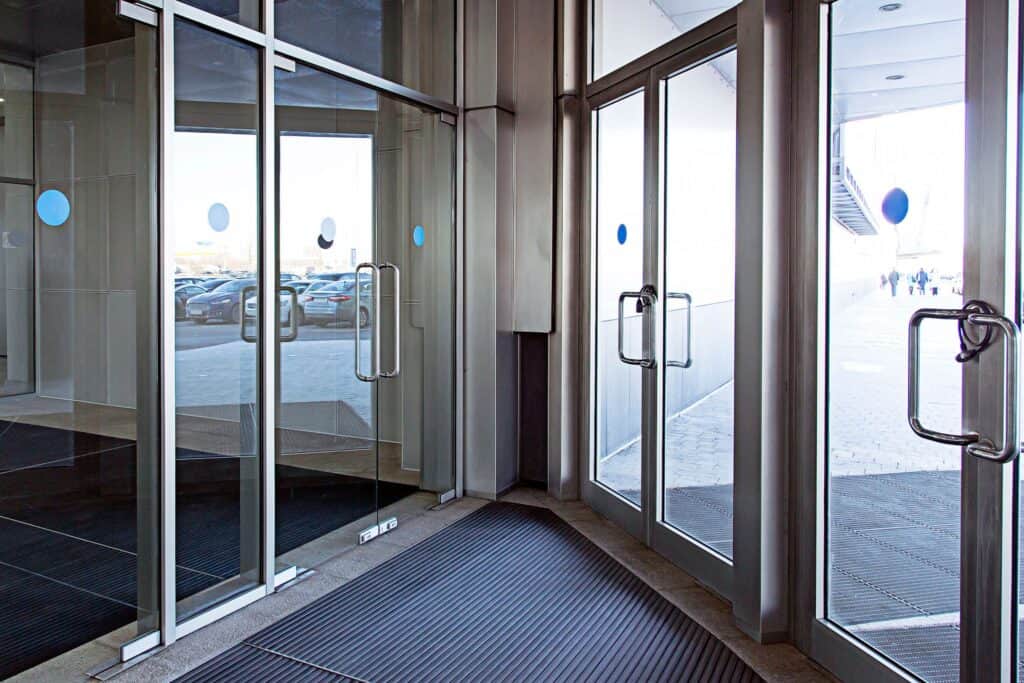
- Recommended Door Type: Well-Designed Glass Doors
- Key Features:
- Modern, inviting appearance.
- Durable door materials to handle heavy foot traffic.
- Secure locking mechanisms for added safety.
Summary Chart for Quick Reference:
| Business Type | Recommended Doors | Primary Function |
| Retail Stores | Glass or Aluminum | Attract customers, improve visibility |
| Restaurants | Fire Rated or Swinging | Fire safety, easy maintenance |
| Warehouses/Industrial | Hollow Metal or Steel | Security, durability, insulation |
| Office Buildings | Wood or Glass | Professional look, sound insulation |
| Healthcare Facilities | Automatic or Fire Rated | Hygiene, accessibility, compliance |
Final Checklist Before You Buy
Selecting the best commercial door is a big decision, but having a checklist can simplify the process. Here’s a quick rundown of everything to consider before making your purchase.
1. Assess Your Business Needs
- Does the door match your business type (e.g., retail, warehouse, office building)?
- Will it handle the traffic levels in your space?
- Does it meet the main function you’re looking for, such as security, fire safety, or aesthetic beauty?
2. Evaluate Materials and Durability
- Have you chosen the best door materials for your business (e.g., glass, steel, aluminum, wood, or fiberglass)?
- Is the door durable enough to handle wear and tear in high-traffic areas?
- Does it offer the insulation or soundproofing you need?
3. Check Safety and Accessibility
- Does the door comply with fire safety standards, especially if you need fire rated doors?
- Is the door ADA-compliant and accessible for all users?
- Are the locking mechanisms and hardware secure and easy to use?
4. Factor in Energy Efficiency
- Is the door insulated or equipped with features like weather stripping to prevent drafts?
- Will it improve energy efficiency and reduce heating or cooling costs?
5. Review Installation and Maintenance Needs
- Have you budgeted for professional installation to ensure proper fitting and compliance with local building codes?
- Are you prepared to schedule regular maintenance to extend the door’s lifespan?
6. Consider Long-Term Value
- Have you balanced upfront costs with long-term savings (e.g., reduced energy bills, fewer repairs)?
- Does the door come with a warranty or service agreement?
- Is it a smart investment for your business operations and branding?
Conclusion
The right commercial door is more than just an entryway—it’s an investment in safety, functionality, and style. By carefully considering your business’s unique requirements, selecting the best materials, and ensuring compliance with regulations, you’re setting your business up for success.
Ready to take the next step? Consult with an expert team to find doors that meet your specific needs and get them professionally installed. Whether it’s sleek glass doors for your storefront, durable hollow metal doors for a warehouse, or energy-efficient options to cut costs, the perfect commercial door is out there.
Make the choice that opens the door to better business operations, improved aesthetics, and a secure future.
